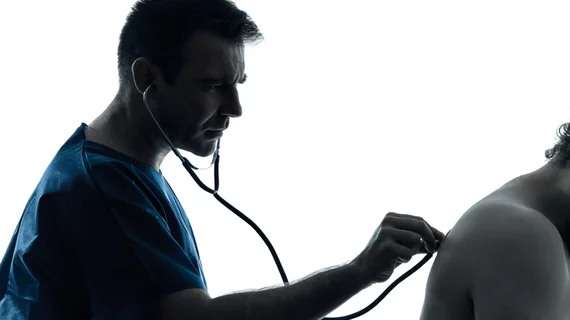'Reflexive management' of incidental findings causes more harm than good
Reporting incidental findings if often described as an ethical responsibility of radiologists, but not everyone agrees. In fact, some believe that reporting incidental findings might cause more harm than good [1].
In a Clinical Perspective published on Jan. 11 in the American Journal of Roentgenology, author Matthew S. Davenport, MD, from the Departments of Radiology and Urology at Michigan Medicine, described incidental finding reporting as “reflexive,” noting that it can “promote low-value and sometimes harmful care.”
“Patients with incidental findings but low risk for disease are likely to experience length bias, lead-time bias, overdiagnosis, and overtreatment that create an illusion of benefit while conferring harm,” Davenport stated.
Incidental findings are quite common, occurring in up to 40% of CT scans, according to the report. While there are numerous formulas to help guide providers in managing incidental findings, there is limited data available on the outcomes and cost-effectiveness of the subsequent evaluations that follow, Davenport explained.
To further elaborate, the doctor offered an example of incidentally catching the early development of cancer on imaging. Although identifying cancer in its earliest stages is typically beneficial, some patients might have never been affected by the malignancy during their lifetime had it gone undetected. But when a radiologist informs referring providers of malignancy, this can result in a slew of additional, often invasive evaluations in addition to added expenses and patient anxiety.
“In addition to physical harm from iatrogenic complication, pursuit of incidental findings causes emotional harm and financial toxicity from ‘cascades of care,’ in which the index test begets a series of expensive additional tests and interventions that themselves trigger ever more tests and interventions,” Davenport noted.
The doctor offered several examples of when following up on incidental findings is beneficial for patients and provides high-value care, but those were outnumbered by examples of more harm than good being caused by the findings.
The published perspective indicates that there is ample room for improvement in how these findings are handled. Davenport suggested that more relevant data could lead to better management strategies for reducing low-value care and instances of harm following the discovery of an incidental finding—something that will require a multi-faceted approach, with much of that responsibility lying squarely on radiologists.
“It is our complication and our challenge to solve.”

